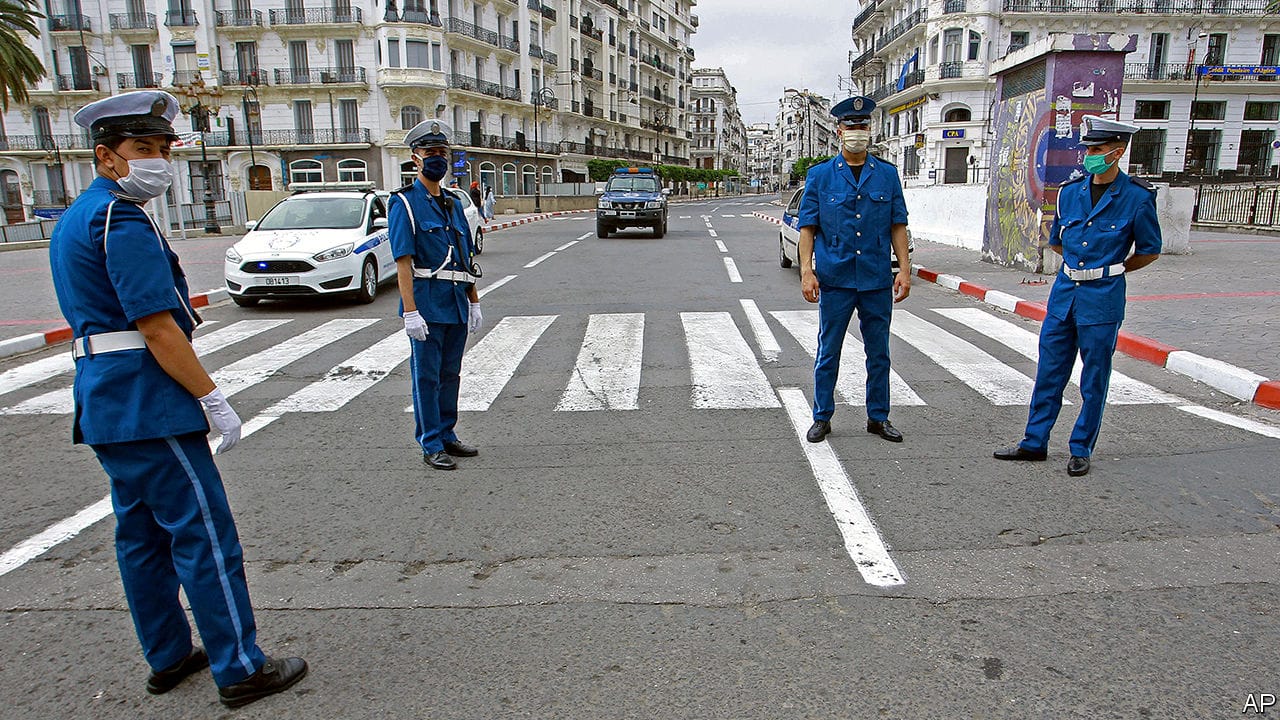- by MAJDAL SHAMS
- 07 28, 2024
-

-
-
Loading

Loading

COVID-19 HAS killed around 700 people in Algeria, says the government, but the real toll is surely higher. The pandemic has also crippled the country’s economy. Last month President Abdelmadjid Tebboune announced that the state budget would be cut in half because of plummeting oil revenue. The virus, though, has helped Mr Tebboune in at least one way. With the country locked down to prevent its spread, protesters have been forced off the streets. Hundreds of thousands of them had been marching for over a year, even after toppling the previous president, Abdelaziz Bouteflika, in April 2019. Their work was unfinished: many of the old economic, political and military elite remained in power. The nature of the system had not changed. Now the protesters must decide how and when to try to finish the job.Like other countries, Algeria banned all public gatherings in response to the virus. But, unlike elsewhere, the authorities seem in no hurry to loosen things up again. Mr Tebboune recently extended the lockdown, including a 5pm curfew, until June 13th. The government has used the outbreak to repress the , as the protest movement is known, blocking critical websites, banning what it calls “fake news” and arresting some who moved their opposition online. Many of the movement’s leaders were already in jail, charged with vague crimes such as “harming national unity” or attacking “the integrity of national territory”. Efforts to reduce prison overcrowding during the outbreak by freeing some detainees have excluded leaders (though two will soon be freed, says the leader of an opposition party).